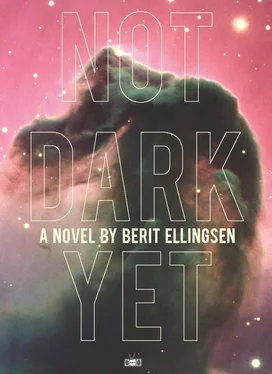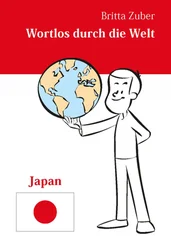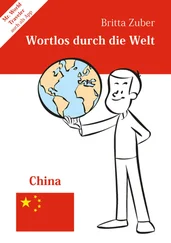Since he had no doctor’s appointment this time, he caught a late train to the coast. When he arrived it was almost dark, a heavy, mist-filled dusk shrouding the town and the sea. Along the pier the ocean was a charcoal plain under a sky the same color, but quiet and still, not perturbed like on his last visit. Not even the cries of seagulls broke the hush. It reminded him of the descriptions of the land of the dead in classical literature; an ashen, cold, and silent world where the dead wandered restlessly, yearning for their former lives, under a sky where neither the sun nor the stars ever rose. Those descriptions had seemed more peaceful and less terrible than the images of the afterlife which the continent’s dominant religion offered: burning in lakes of fire while being tortured by malevolent supernatural beings. But now he felt less certain. Perhaps eternal agony was preferable to eternal longing.
Darkness fell quickly. The resort town seemed almost abandoned, and more shops were closed or boarded up than last time. As he crossed the city center and entered the streets that led inland, he saw only a handful of moving cars. Not until he reached the brown-painted door between the surf store and the pharmacy where a handful of people stood smoking and chatting did he see anyone else. He stopped a few meters upwind from the group and checked his mail and messages on the phone. When the smokers dropped their cigarettes and filed inside, holding the door open for one another, he followed them into the threadbare corridor and up the stairs. Once again he had timed his arrival well, and while the crowd was about to sit down and hang their jackets on the backs of their chairs, he slid into a seat behind them. Right in front of him was a tall man in a red jacket and a woman with a hairy knit beret. If he leaned back in the chair, he’d be almost impossible to see from the front.
This time the introductory speaker wasn’t Narayan, but a woman with blond hair he recognized as one of Kaye’s senior PhD students. Were these lectures some form of graduate teaching? Or had Kaye moved his entire group to the coast to conduct marine research? But the graduate student presented no local projects or experiments of her own, only the reports and numbers of other scientists, research institutions, and international organizations, on climate change and global warming. How much the temperature was increasing, the speed at which it was happening, how fast the polar regions were melting, how quickly the sea was rising, how much the heightened levels of carbon dioxide in the atmosphere increased the acidity in the oceans and the thawing of the tundra, how the new temperatures led to droughts, forest fires, crop failures. How the elevated ocean levels made low-lying cities and countries prone to flooding, storms, loss of drinking water, and arable land, how food production was dramatically decreasing all over the world, and how, in just a few years only the truly rich would be able to afford to eat food that was clean and healthy, while starvation, malnutrition, and lack of water would become the norm for most of the planet’s billions, even on the western and northern continent. The student then showed what the rainier summers and the milder winters in the north and the hotter summers and the drier winters in the south would mean for the countries on the continent. It was no longer a question of if or when, the changes were not about to happen, they had long since started, and already the effects of human-made climate change were being felt harshly all over the planet.
The information made his stomach turn and his heart beat heavily. He remembered warnings in the past of how bad the future would become if the emissions of greenhouse gases were not ceased or the use of fossil fuels not exchanged for renewable energy sources. That had not happened, they had been allowed to continue more or less like before, and so the troubling, uncertain future had become the volatile, menacing present.
Finally, Kaye himself appeared on the dais and took the microphone. More slides and graphs, what the climate and environmental changes would mean for the country, this particular stretch of coast, and the local community. And lastly, what the community could do, which political representatives to write to, what companies to protest against, which rallies to join, and petitions to sign, what a grassroots movement could do, and was allowed to do.
Kaye made it sound like it did matter, that it would actually help. He felt like joining those petitions, writing those politicians, returning to these meetings. When the lecture was over, he was so caught up in the buzz and the chatter of the crowd that when he finally rose to leave, the aisle was thronged with people and the doorway blocked. He cursed inside for having lost his presence of mind and not left earlier. He quickly put on his jacket and folded the collar up. It was an average mountain jacket from a very common brand. He had seen at least one other like it in the crowd, so theoretically he should not be noticed. But the queue moved slower than passengers exiting a plane, the audience busy hailing each other and chatting amicably, discussing the lecture and recent local events. He had forgotten to take the slow trickle of familiarity into account.
He was nearly jumping with impatience when someone called his name from behind and moved toward him with quick steps. There was no point in trying to pretend that he hadn’t heard it, and the crowd was moving so slowly there was no chance to slip out the door and get away. Forcing himself to relax, telling himself he already had the back story he needed, he turned.
“What a pleasure to see you here,” Kaye said, beaming. Faint vertical scars were visible just beneath his hairline.
“Kaye,” he said, “that was one hell of a presentation.”
Kaye laughed and patted his shoulder. “Thank you, my friend,” he said. “Environmental protection has always been a passion of mine. These days it’s no longer about conservation, but of survival.”
He suddenly remembered one of the awards and certifications that had been on display in Kaye’s house. “Now I understand why the faculty named you best lecturer of the year,” he said, smiling. But instead of the immediate and distracting shine the flattery was meant to produce, there was a brief sting, a visible guardedness in Kaye’s eyes.
“Thank you,” Kaye said and returned the smile, a little too late to look unforced. “But what are you doing in this part of the world? Don’t tell me you’re here on vacation, this time of year?”
He shook his head. “No, I’m here for a doctor’s appointment. I live up at the moor now.”
“You’ve given up the city?” Kaye chuckled. “I always figured you for an urbanite.”
He smiled again. “I got mixed up with an agricultural project and some crazy farmers.”
“So you’re a farmer now?” Kaye said and laughed.
“It seems so,” he lied.
“Now I’m curious, what’s this project about?”
“Winter wheat,” he said.
“Winter wheat? In the mountains?”
He nodded.
“You know, they used to get most of their money from logging.”
“Seems they want to expand their business,” he said. “It’s become mild enough to grow other crops.”
Kaye’s smile faded. “See how far it’s been allowed to develop? And the worst thing isn’t that it’s our fault, our capitalism, our consumption, and our unwillingness to stop it that’s made it so. The worst thing is that we saw it coming decades ago and we barely did anything, because of our self-interest and refusal to change. We had every chance, all the possibility in the world to stop it in time, and we didn’t take it. Future generations are going to view us as the ancestors who permanently ruined the environment.”
Читать дальше












